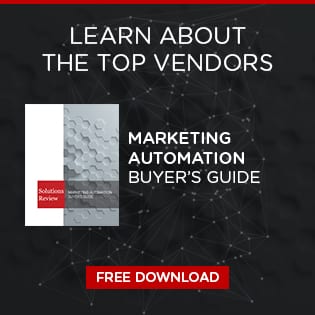Quantum AI in Marketing: The Next Frontier of Customer Engagement

SAS’s Jonathan Moran offers commentary on quantum AI in marketing and the next frontier of customer engagement. This article originally appeared in Insight Jam, an enterprise IT community that enables human conversation on AI.
Marketing has always been an incubator for innovation, from the Mad Men era of intuitive campaigns to today’s data-driven, AI-enhanced customer engagement strategies.
Technology has been a key driver of change and innovation in marketing. And now yet another emerging technology is poised to redefine how marketers understand, influence, and engage with audiences. Quantum AI, the fusion of quantum computing and artificial intelligence, is still at an early stage but has the potential to fundamentally change marketing.
Evolving From Agentic to Quantum AI
According to a recent study, Marketers and AI: Navigating New Depths, 31 percent of adopters (marketers who are already using agentic AI) expect quantum computing to impact marketing within two years. These early adopters aren’t just dabbling; they’re building the infrastructure to eventually support thousands of autonomous agents that will operate alongside employees, making real-time decisions based on predicted outcomes, optimizing campaigns, and even creating digital environments.
The leap in readiness between adopters of new technology and planners (plan to use the tech in the next year) and adopters (plan to use the tech in the next two years) is striking. While only 16 percent of marketers overall say they understand quantum computing well, that number jumps to 49 percent among agentic AI adopters. These early adopters are not just experimenting with autonomous agents, they’re preparing for quantum’s computational power, its collaboration with AI technologies, and its undoubtedly massive impacts on marketing.
Why Quantum AI Matters for Marketers
Quantum AI combines the probabilistic power of quantum computing with the pattern recognition and decision-making of AI. Unlike classical computers that process bits as 0s or 1s, quantum computers use qubits, which can represent multiple states simultaneously. This makes them ideal for solving complex optimization problems, simulating customer journeys, and analyzing massive datasets in real-time.
For marketers, quantum AI’s vast potential can translate into:
- Faster audience insights: Quantum AI can create and microsegment audiences with more precision and speed than traditional solutions.
- Smarter behavior prediction: Enhanced data analysis leads to better forecasting, personalization, targeting and real-time AI decisioning.
- Real-time optimization: Quantum speeds up A/B and multivariate testing, feedback loops, and pricing models, enabling immediate strategy adjustments.
Unlocking Quantum’s Marketing Potential
Quantum AI is poised to revolutionize many core marketing functions, several being:
Audience Segmentation
Quantum AI enables the processing of vast datasets with more variables and attributes, allowing marketers to refine segments faster and more accurately. This leads to hyper-targeted campaigns with improved performance.
Customer Behavior Prediction
Quantum-enhanced machine learning models can deliver deeper insights into preferences, trends and patterns. This supports more precise personalization and dynamic content delivery based on real-time behavior.
Optimization
Marketing optimization often involves evaluating countless combinations of variables. Quantum AI can dramatically accelerate this process, helping marketers allocate budgets, adjust strategies, appropriately contact to avoid customer saturation, and maximize ROI with unprecedented speed.
Journey simulation
Quantum AI can simulate and help orchestrate complex customer journeys across multiple touchpoints, enabling marketers to anticipate outcomes and tailor experiences proactively.
Real-world Applications Across Industries
The study reveals that quantum AI is already being explored across industries:
- Banking: Advanced predictive analysis for fraud detection, risk mitigation, and customer retention.
- Insurance: Real-time customer journey simulation to improve claims processing and engagement.
- Life Sciences: Hyper-personalization at scale for patient communications and trial recruitment.
- Public Sector: Synthetic data generation and dynamic pricing for citizen programs and services.
Barriers to Adoption: What’s Holding Quantum AI Back?
Despite its promise, quantum AI faces hurdles. Another SAS survey, conducted in April and involving 500 business leaders globally, found that top concerns related to quantum AI include high cost (38 percent), a lack of understanding or knowledge (35 percent), and uncertainty around real-world applications (31 percent).
These barriers underscore the need for economic conversations around cost, enablement and education, and trusted partnership and ecosystem planning. As quantum evolves, organizations should make quantum education and research more accessible, explore hybrid quantum-classical solutions, and collaborate with companies and broader industry consortia already working on quantum technologies.
A Quantum AI Readiness Checklist for Marketers
If quantum AI still feels like science fiction, here are a few tips to begin your journey:
- Master traditional, generative, and agentic AI first: Quantum AI builds on the foundations of traditional, generative, and agentic AI. Ensure your team is proficient in these technologies before leaping into quantum.
- Build quantum into your innovation roadmap: Even if implementation is years away, start planning now. Identify potential use cases, assess data readiness and explore partnerships with quantum leaders.
- Upskill your team: Invest in training that covers quantum basics, AI ethics and data governance. Encourage cross-functional learning among marketing, IT and data science teams.
- Start small with hybrid models and projects: Explore hybrid quantum-classical architectures for optimization problems. These models offer a manageable entry point while delivering tangible benefits.
- Focus on trust and transparency: As with any AI initiative, trust is paramount. Ensure explainability, oversight and ethical use are baked into your quantum AI strategy.
The Quantum Advantage: Speed, Scale, and Strategy
As agentic AI matures and the demand for real-time, hyper-personalized experiences grows, quantum AI’s speed, scale and computing power hold great promise to meet this demand. Marketers who embrace quantum today – by learning more about it and its potential application across marketing functions – will be positioned to lead the next wave of marketing transformation.




















